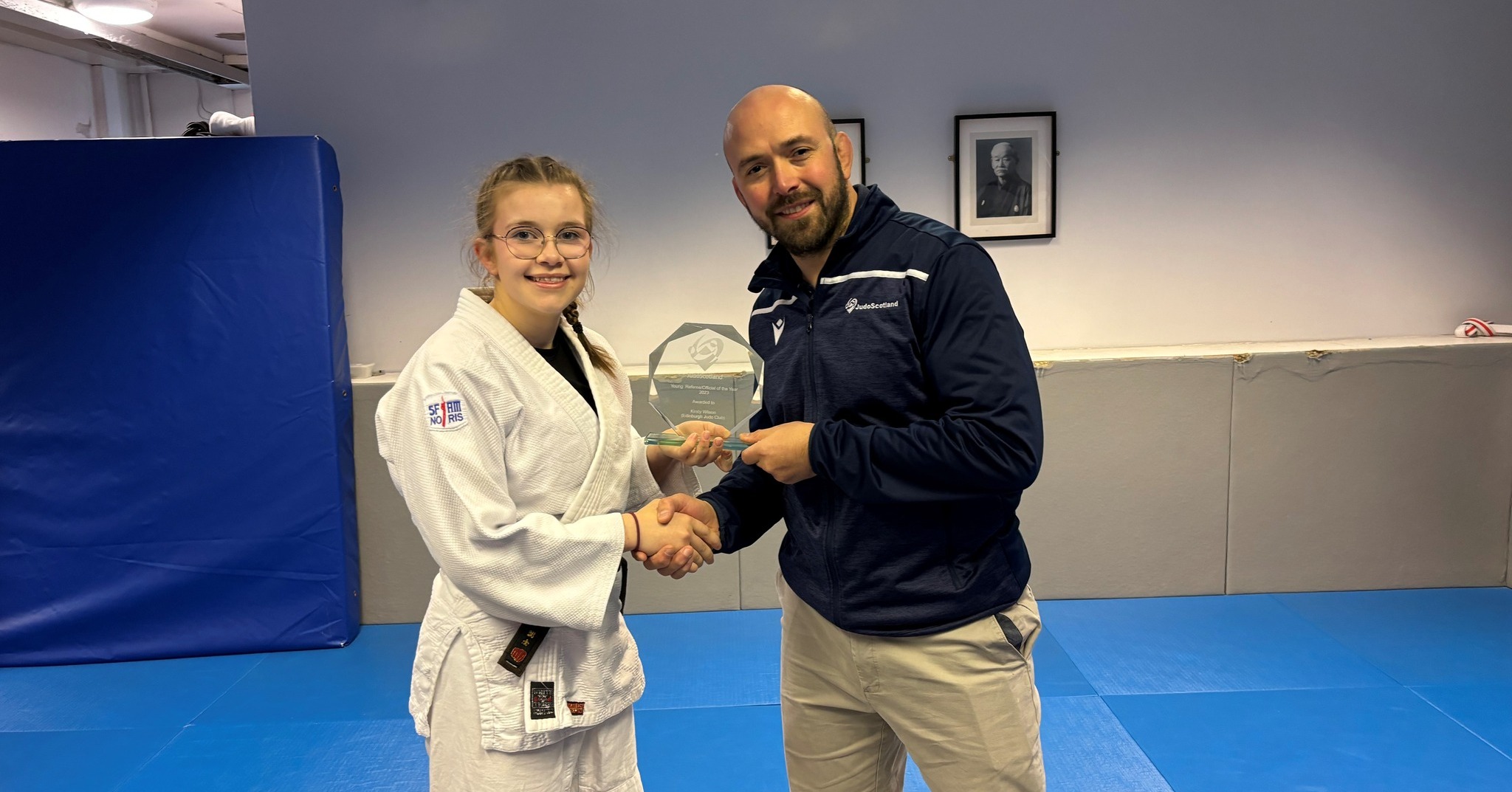In her own words, Kirsty Wilson reflects on her unexpected journey from judo competitor to referee, highlighting the personal and competitive benefits of officiating in judo.
My judo journey began when I was just three years old. Little did my parents or I know that 13 years later I would be so involved in the sport (much to my dad’s annoyance as I make him drive me across the country every other weekend)! I don’t think I can explain exactly why I like judo. It’s probably the people. Judo isn’t a team sport, but I think it’s still so close-knit as a sport, as well as in individual clubs; I truly believe that there is a real team spirit to it.
In October of 2022, one of my club coaches mentioned a refereeing course and suggested I should go along. At this point, I had only been competing for a matter of months and to be honest, I knew nothing about the rules. I knew I couldn’t go out the mat area, I couldn’t armlock or strangle and that I was only to stop if the referee called matte. So, I went along to the course mainly to learn some more rules. I had no great intentions or desire to become a referee. For starters, I didn’t have nearly enough confidence for that. I sat the course and fulfilled my aim of learning some rules. I also participated in a multiple choice test about different scenarios that had been spoken about during the day (this was the part where my avid love of notes came in handy)! I was graded there and then and whilst I can’t remember what the pass rate for an area referee was, I do remember that I got one mark over whatever it was. I was off to a shaky start when it came to refereeing.
My start got shakier when I had to go out into the middle of the mat. I mean, what if I got it wrong, the world would fall apart! I have later found peace with getting it wrong because I have realised that if you do, they just tell you and you change it.
I can safely say now that my first few events weren’t great; as soon as one thing went wrong, it would set me askew for the rest of the fights. I also had a habit of just looking a bit scared, because I was. But I still went out, once every couple of months and did some refereeing.
The more practice I had, the better I got and my confidence began to grow. If you told me a year and a half ago that I’d end up refereeing as much as I do and enjoying it, I would be gob-smacked, I think I would have keeled over if I knew I’d end up getting the young referee award last year. And now I’m being told by the people higher up than me that I should be pushing to get a national C qualification!

Refereeing has massively improved my confidence, in and out of judo. It’s helped my competitive judo because I now understand fully what I can and can’t do in a contest.
I’m so lucky that at every competition I have been able to split my time between refereeing and competing. The other referees have been nothing but supportive of me leaving the mat to compete. It is often them telling me “Kirsty you need to leave now because you are on in an hour and a half!”.
I think it is important that other young people know that it doesn’t have to be one or the other when it comes to refereeing and competing. I think a lot of people believe that all the referees started when they either become too old to compete, had injuries or had just never done it in the first place. I can understand why one might think that because in most cases that is true. So, I hope I can be proof to those who want to start refereeing that it is possible to successfully referee and compete.
I think there is a significant issue with young referees, in that there aren’t enough of them. I don’t know of many other referees who are similar in age to me. There certainly aren’t any regularly attending events in Scotland.
However, there is a fine line that needs to be danced on to fix this problem. One of the good things when I did my qualification was that it was pretty much just me doing it at the time. This meant that I could attend every event to gain experience. Recently I think there was a really large group of people who sat a course and became trainees. We need to work to ensure that this continues in the next few years and that the system in place can withstand having larger volumes of people put through so is enough practical practice time for new referees. Truthfully, I don’t know what the answer is, but I do think that there is a massive need for younger referees. Ultimately, competitions can’t happen without the officials and the referees. And if the cycle doesn’t have more referees put into it then it will grind to a halt.
People make judo happen and people make it what it is, right the way from the very top of the chart down to little girls and boys like me starting judo at three.